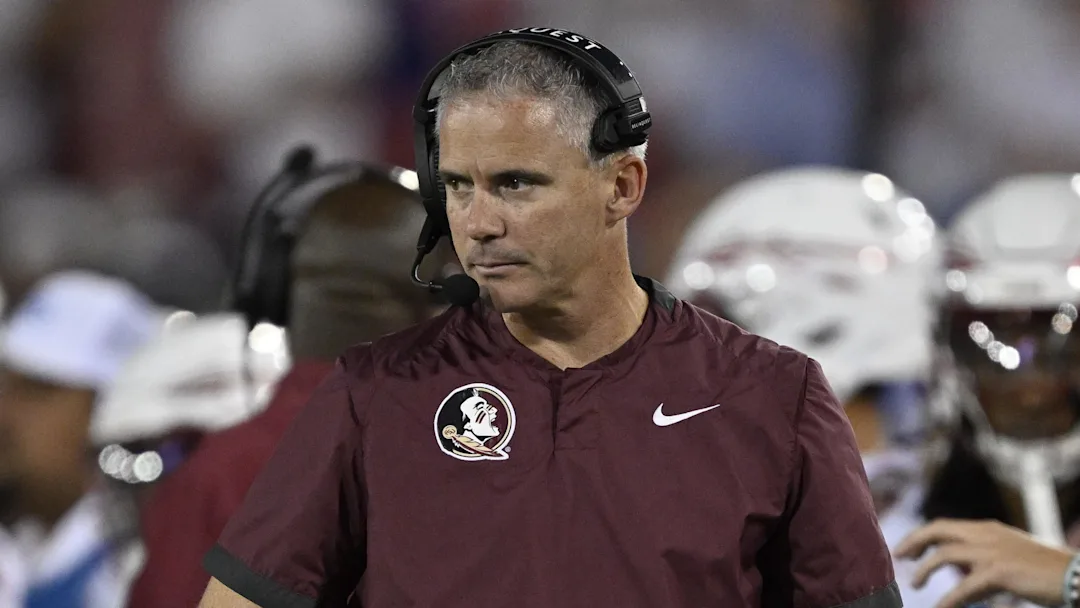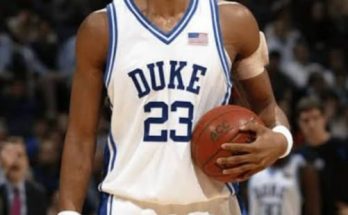Florida State was supposed to be back. After years of mediocrity following the Jimbo Fisher era, 2023 looked like the year the Seminoles would reclaim their place among college football’s elite. They were fast, physical, and undefeated heading into the ACC Championship Game. They had a defense that suffocated opposing quarterbacks, a veteran-laden roster, and a chip on their shoulder big enough to flatten most teams. Yet as the dust settled on a season that ended with heartbreak and exclusion from the College Football Playoff, murmurs around the conference began to emerge — and now, anonymous ACC coaches are peeling back the curtain to reveal what truly went wrong at Florida State.
From the outside, the Seminoles looked like contenders. But within the walls of opposing locker rooms, there was skepticism. “They weren’t as dominant as their record showed,” one veteran ACC defensive coordinator said. “We saw holes. You can mask a lot of weaknesses when you’re winning, but that doesn’t mean those weaknesses aren’t there.” Several coaches pointed to Florida State’s struggles against lesser opponents, close calls that hinted at something deeper than bad luck or an off-day. “Boston College had them on the ropes. If they can take you to the wire, that’s not a fluke — that’s a sign,” another assistant noted.
Perhaps the biggest turning point was the injury to quarterback Jordan Travis, whose season-ending leg injury shook the entire program. Coaches around the league agree that Travis was the glue holding the offense together. “He covered for a lot of inefficiencies,” said one head coach. “They had elite talent at wideout, but without Travis, the offense lost its rhythm. He extended plays, he read coverages well, and he brought confidence to everyone on that side of the ball.” After his injury, Florida State’s offense sputtered. While they managed to win games with backup quarterbacks, the identity of the team changed — and not for the better.
The quarterback position wasn’t the only concern. While Florida State boasted one of the better defensive fronts in the ACC, multiple coaches criticized their lack of depth and inconsistency in the secondary. “They were feast or famine,” a wide receivers coach said. “You could hit explosive plays on them if you got the matchups you wanted. They gambled a lot and were aggressive, which worked against weaker opponents but cost them against teams with better game plans.” Some coaches noted that teams were catching up schematically to what Florida State was doing defensively. “They blitzed heavily, but if you had a good offensive line and a composed quarterback, you could burn them,” one coordinator said.
Another source of concern was team discipline — or the lack thereof. Coaches pointed out that Florida State often looked undisciplined in big moments. “They made mental mistakes that good teams don’t make,” a rival head coach remarked. “False starts, missed assignments, bad penalties — that stuff adds up. You can get away with it in September. But not in December.” One coach suggested that the staff relied too heavily on emotional momentum rather than tactical execution. “They played with fire, which can inspire a team, but it can also backfire. You need poise in pressure situations, and I didn’t see that from them late in the year.”
Some critiques also extended to the coaching staff itself. While head coach Mike Norvell received praise for reviving the program and instilling belief, not everyone in the league was sold on the long-term sustainability of his system. “He’s a good motivator and clearly a strong recruiter, but in-game adjustments were lacking,” said one opposing defensive coach. “They didn’t adapt as well as you’d expect from a top-tier program. When their Plan A didn’t work, they didn’t always have a Plan B.” Another coach went further, suggesting that the coaching staff was too loyal to certain schemes even when they weren’t producing results. “It’s like they were married to their identity rather than evolving with their personnel. That’s dangerous in today’s game.”
Recruiting was also a talking point among the anonymous coaches. Florida State has landed top-tier transfers in recent years, using the portal to plug holes and reload talent quickly. But some believe this approach comes with risks. “They leaned too much on transfers,” one coach stated. “That can help you in the short term, but it’s hard to build long-term chemistry that way. Culture matters, especially when adversity hits. When your leaders are only in the program for one year, you don’t always get that strong locker room foundation.” Others echoed that sentiment, noting that while the Seminoles got high-profile talent, the cohesion wasn’t always there. “You could tell they hadn’t played together long. In crunch time, they looked more like a collection of talent than a team.”
Despite the criticisms, there was still a shared sense of respect among the coaches for what Florida State accomplished. “Look, going undefeated in the regular season is no joke,” one coach admitted. “You don’t do that unless you’ve got something special. But special doesn’t always mean elite.” Another added, “They beat LSU. They won tough road games. They found ways to win when it mattered. That says a lot. But it also makes their collapse more confounding.”
One coach likened Florida State’s season to a high-wire act. “They were walking a tightrope all year. They never had a huge margin for error. When Travis went down, they lost the balance. And when you’re up that high, any slip is fatal.” The final blow came not on the field but in the boardroom, when the College Football Playoff committee controversially excluded Florida State from the top four despite their perfect record. While that decision sparked outrage among fans and players, several ACC coaches quietly admitted they understood it. “It’s not about what you did,” one said bluntly. “It’s about who you are when it matters. And after Travis got hurt, they weren’t one of the four best teams anymore.”
Still, the fallout from that snub could ripple through the ACC for years. Florida State felt disrespected. The league, already on shaky footing with its power programs, may struggle to retain the Seminoles long-term. “That whole situation could be the tipping point,” one coach warned. “FSU already doesn’t like the ACC’s media deal. Now they feel like the league didn’t do enough to advocate for them. That’s dangerous.” If Florida State leaves for the SEC or Big Ten — something that has been speculated for years — the ACC’s future would look significantly different.
In many ways, the story of Florida State’s 2023 season is a cautionary tale. A team that looked unstoppable on paper was slowly unraveling beneath the surface. Injuries, overreliance on transfers, shaky in-game strategy, and questions about discipline and depth all contributed to a fall from grace that few outside the locker room saw coming — but many inside the ACC did. “The signs were there,” one coach said. “You just had to be paying attention.”
Now, Florida State enters a critical crossroads. Can they rebound and prove that last season was a step toward sustainable success, not a one-year anomaly? Or will the frustrations and fractures exposed by opposing coaches deepen into something harder to fix? That answer may depend not just on the players they bring in or the games they win — but on whether they listen to the voices of those who saw the collapse coming long before the rest of us did.


